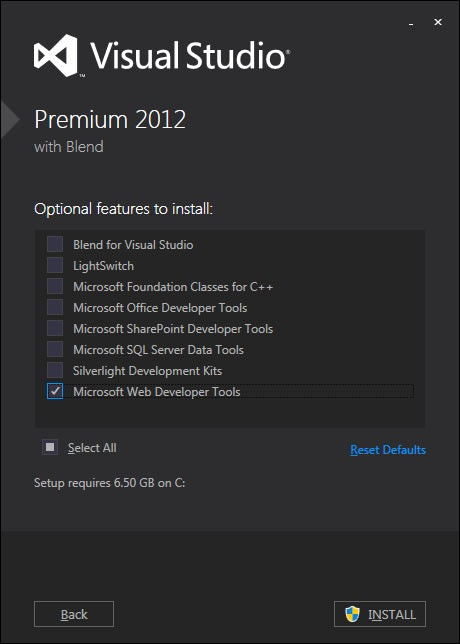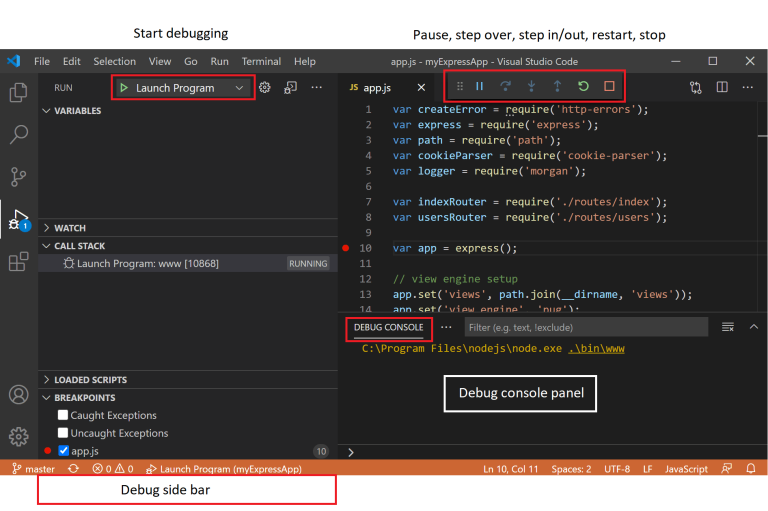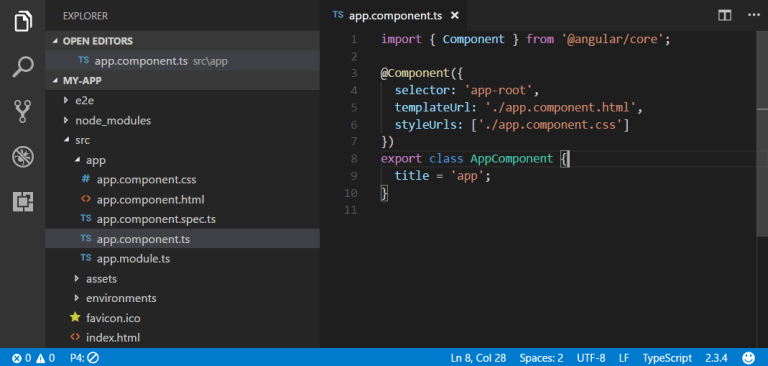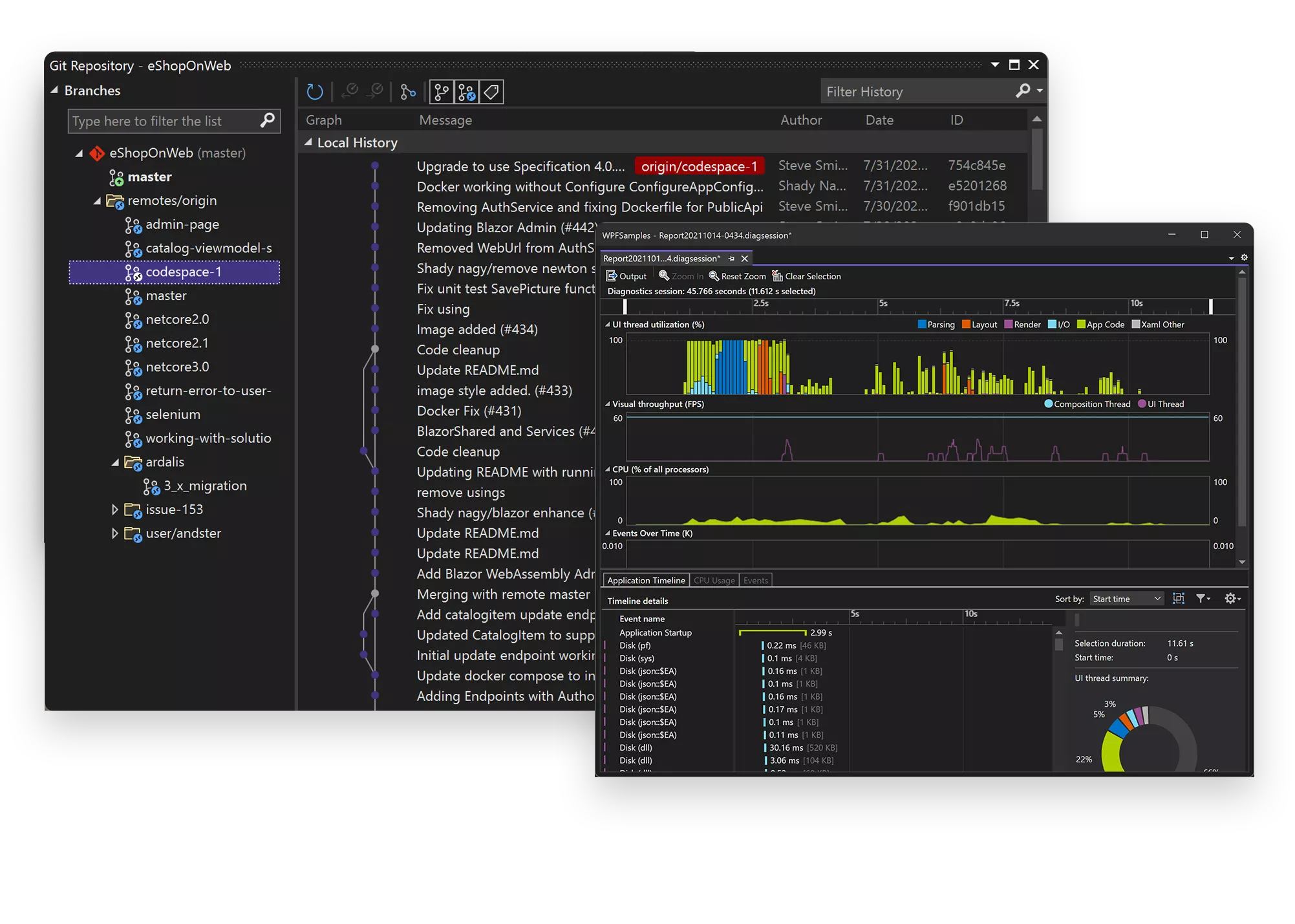
What is Microsoft Visual Studio used for?
One could argue that Microsoft Visual Studio is the pinnacle of integrated development environments (IDEs), yet its scope goes far beyond just writing code. Have you considered how it effectively streamlines application lifecycle management for developers? It's not just the features but the symphony of tools and extensions that make it indispensable.
Visual Studio's roots can be traced back to 1997, and it has since evolved into a powerhouse that supports multiple programming languages. Notably, over 21,000 extensions enable a high degree of customization. With robust capabilities for debugging, source control, and testing, it offers a comprehensive suite that enhances productivity and code quality.
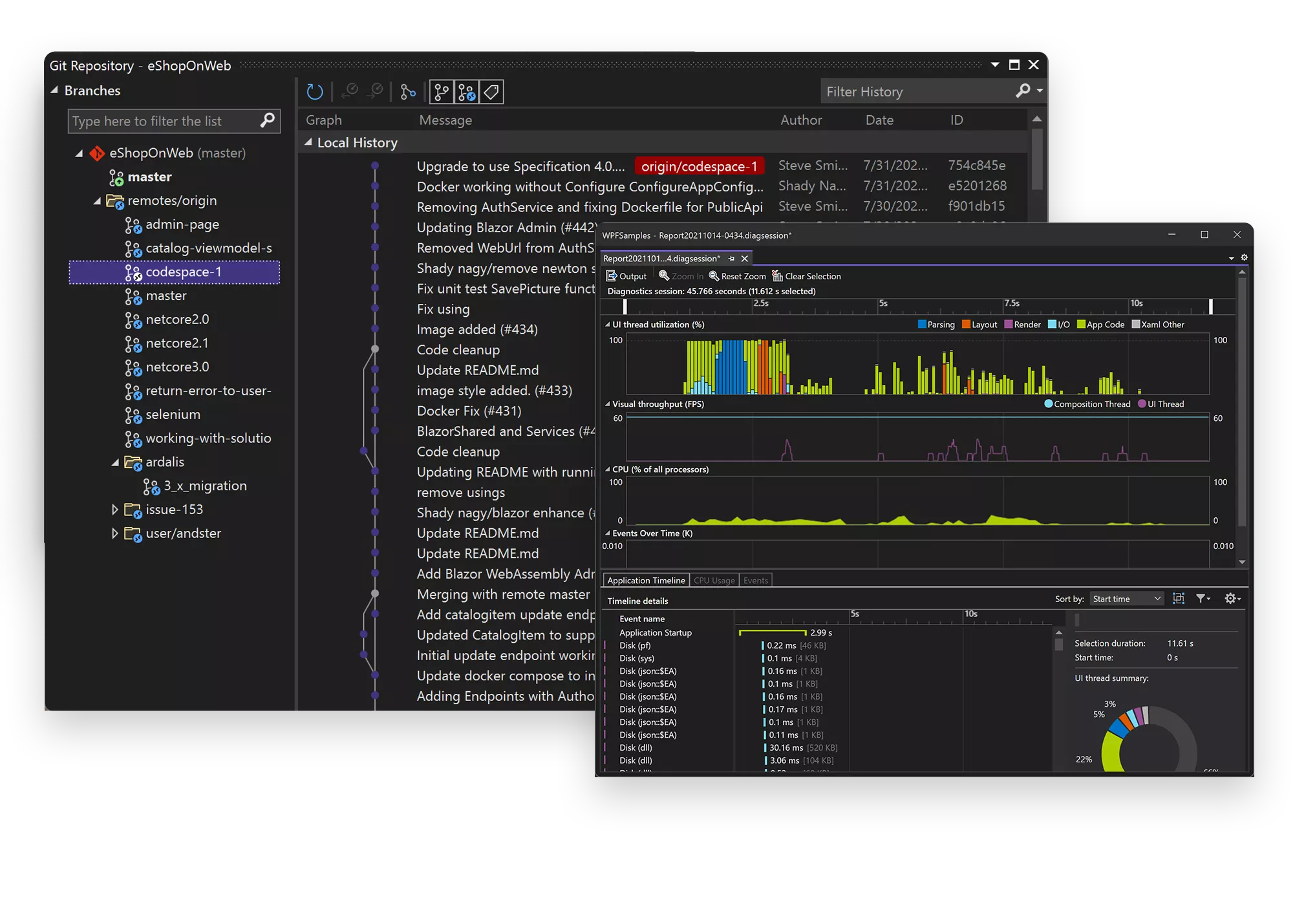
What is Microsoft Visual Studio?
Microsoft Visual Studio is a powerful development environment used by software programmers. It helps developers write, test, and debug code. This tool supports many programming languages, including C#, VB.NET, and Python. Visual Studio makes it easy to create applications for Windows, web, and mobile devices. Its user-friendly interface helps beginners and experts alike.
One of the key features of Visual Studio is its integrated development environment (IDE). The IDE combines a code editor, debugger, and other tools in one place. It also offers IntelliSense, an advanced code completion feature. IntelliSense suggests code snippets and completes code as you type. This can save developers a lot of time and reduce errors.
With Visual Studio, collaboration becomes simpler. It integrates with version control systems like Git and SVN. This allows multiple developers to work on the same project simultaneously. They can track changes, resolve conflicts, and manage project versions easily. These features promote teamwork and improve code quality.
Visual Studio also offers extensions and plugins to enhance its functionality. Developers can add tools that suit their needs, from design frameworks to testing tools. This adaptability makes Visual Studio ideal for a wide range of projects. Whether you're building a small app or a complex system, Visual Studio can be customized to fit your workflow.
Defining the Concept: Microsoft Visual Studio
Microsoft Visual Studio is an integrated development environment, or IDE, that helps developers build software applications. It's like a one-stop shop for all the tools needed to write and debug code. Many call it the Swiss Army knife of coding due to its diverse features. From a single interface, developers can handle multiple tasks, saving time and effort. Visual Studio makes coding more efficient and less prone to errors.
One of the most notable aspects of Visual Studio is its support for multiple programming languages. Languages such as C#, C++, Python, and JavaScript can be used within the same platform. This versatility means developers don't need to switch between different tools for different projects. Additionally, Visual Studio offers a wide range of templates to kickstart new projects. This makes it easier to start coding without setting up everything from scratch.
The IDE offers various built-in tools for debugging and testing code. These tools help identify and fix errors or bugs in the software. The code editor itself includes IntelliSense, which provides smart suggestions as you type. These features streamline the development process and improve the quality of the final product. According to this resource, the debugging capabilities make Visual Studio a top choice for many developers.
Visual Studio also supports collaboration among teams. It integrates well with version control systems like Git and SVN. This means that multiple developers can work on the same project simultaneously without clashing. Through features like code reviews and pull requests, teams can ensure high-quality code. Visual Studio also offers various extensions and plugins, making it highly customizable to meet specific project needs.
The Functions and Uses of Microsoft Visual Studio
Microsoft Visual Studio is used for a variety of functions in software development. One primary use is building desktop applications for Windows. Developers can also use Visual Studio to create web applications with languages like HTML, CSS, and JavaScript. For mobile app development, it supports platforms like Xamarin. These capabilities make it a versatile tool for many projects.
Another key function is its ability to handle database development. Visual Studio allows you to design and manage databases, making it easier to handle data storage for applications. You can write and execute SQL queries directly from the IDE. This integration helps streamline database-related tasks. It also supports multiple database systems, including SQL Server and MySQL.
Visual Studio excels at testing and debugging. Built-in tools let developers identify and fix bugs efficiently. It includes a powerful debugger that can inspect code, track variables, and set breakpoints. This makes the debugging process quicker and more accurate. Additionally, automated testing frameworks are available to ensure that your code works as expected.
Collaboration features are another strength of Visual Studio. It integrates seamlessly with version control systems, allowing teams to work together effectively. Features like pull requests, code reviews, and branching simplify teamwork. Extensions also add functionalities that suit project-specific needs. Using Visual Studio, teams can maintain high code quality with robust collaboration tools.
The Role of Microsoft Visual Studio in Development
Microsoft Visual Studio plays a crucial role in the development process by providing a unified platform for various tasks. It allows developers to write, edit, and debug code all in one place. This efficiency is enhanced by features like IntelliSense, which offers smart suggestions to streamline coding. Developers can see their changes in real-time, improving the speed of development. This makes Visual Studio indispensable for modern software projects.
Project management is another important role that Visual Studio fulfills. It integrates with systems like Azure DevOps and GitHub, enabling teams to manage their workflows seamlessly. Using this integration, developers can track progress, assign tasks, and perform code reviews. This helps keep projects on track and ensures that deadlines are met. Moreover, built-in templates can standardize project setups, making it easier to start new tasks.
Automation is a key aspect where Visual Studio excels. The tool offers various automated testing frameworks to ensure that code functions correctly. These frameworks include unit tests, integration tests, and performance tests. Automation reduces the time spent on manual testing, allowing developers to focus on new features. It also improves code quality by catching issues early in the development cycle.
Visual Studio's role extends to deployment and continuous integration/continuous deployment (CI/CD) practices. It supports the creation of CI/CD pipelines, which automate the process of building, testing, and deploying applications. This ensures that code changes are pushed to production quickly and safely. By automating these tasks, developers can maintain smooth and efficient workflows. These features make Visual Studio a key tool in modern software development practices.
The IDE also fosters collaboration through its extensive version control support. Teams can work together more effectively using tools like Git, SVN, and Team Foundation Server. This allows multiple contributors to work on the same project without interfering with each other's code. Moreover, features like code review and pull requests help maintain high standards. All these capabilities make Visual Studio essential for team-based development.
Lastly, Visual Studio plays a role in supporting a wide range of applications, from web and mobile to cloud computing. It offers specialized tools and frameworks for different types of projects. This includes Xamarin for mobile development, ASP.NET for web apps, and Azure tools for cloud services. By covering a broad spectrum of development needs, Visual Studio serves as a versatile and comprehensive IDE for developers.
Unique Features of Microsoft Visual Studio
Visual Studio stands out with its IntelliSense feature, which helps developers write code more efficiently. It provides smart suggestions, auto-completing code snippets as you type. This not only speeds up the coding process but also reduces errors. IntelliSense works with a wide variety of programming languages. Having this feature makes coding less stressful and more accurate.
Another unique feature is the integrated debugging tools. These tools allow you to step through your code line by line to find and fix bugs. You can set breakpoints, watch variables, and inspect the call stack. This makes the debugging process much more manageable. Developers can quickly identify and resolve issues, enhancing the quality of the final product.
Visual Studio also excels in collaboration features. It supports version control systems like Git, allowing multiple developers to work on the same project simultaneously. Through features like pull requests and code reviews, team collaboration becomes streamlined. Version history keeps track of all changes, making it easy to revert if needed. These features make teamwork smoother and more efficient.
Customization is another strong suit of Visual Studio. It offers a wide range of extensions and plugins to tailor the IDE to your specific needs. These can include design tools, testing frameworks, and additional language support. The Visual Studio Marketplace is filled with options to enhance your development environment. This flexibility allows developers to create a setup that works best for them.
Live Share is a feature that stands out for remote collaboration. It allows developers to share their coding environment in real-time. This is incredibly useful for pair programming and remote team discussions. You can share your code, run debugging sessions, and even share terminal sessions. Live Share makes it easier to collaborate, no matter where your team is located.
Visual Studio supports a variety of project types. Whether you are developing web applications, mobile apps, or desktop software, it offers the tools you need. The IDE includes built-in templates for different project types. This makes it easy to start new projects without having to configure everything yourself. Visual Studio’s versatility makes it a go-to choice for many developers.
The Benefits of Using Microsoft Visual Studio
One of the main benefits of using Microsoft Visual Studio is its all-in-one environment. Developers can write, test, and debug their code all within the same application. This integrated approach saves a lot of time and effort. No need to switch between different tools, streamlining the development process. Having everything in one place increases efficiency and reduces errors.
Visual Studio's extensive language support is another major advantage. It accommodates multiple programming languages like C#, C++, Python, and JavaScript. This versatility allows developers to work on various types of projects without the need for different IDEs. It makes transitioning between languages seamless. Such flexibility is beneficial for both beginners and experienced developers.
The IDE also offers superb debugging tools. You can set breakpoints, inspect variables, and step through your code. These tools make it easier to find and fix bugs, improving the overall quality of your software. Additionally, Visual Studio's debugging capabilities are far superior to those of many other IDEs. This makes it a go-to choice for professionals who require robust error-checking features.
Visual Studio excels in automation, particularly in testing. The IDE supports automated unit tests, integration tests, and load tests. Automation reduces the need for manual testing and accelerates the development cycle. You can quickly verify that your code works as intended. This ensures that your projects are more reliable and easier to maintain.
Another key benefit is the extensive set of extensions available. Developers can customize their IDE to suit specific project needs. From design tools to additional language support, there's an extension for almost everything. The Visual Studio Marketplace offers a wide range of plugins that can enhance your productivity. Customizing your workspace has never been easier.
Collaboration features in Visual Studio make teamwork effortless. With integrated version control systems like Git, teams can work together efficiently. Tools for code review, pull requests, and branching ensure high-quality code. Multiple developers can work on the same project without interfering with each other's work. These features make Visual Studio ideal for both solo projects and team-based development.
Key Takeaways
- Visual Studio is an all-in-one development tool.
- It supports many programming languages like C# and Python.
- Developers can debug and test code efficiently.
- Collaboration features make teamwork easier.
- The IDE is customizable with various extensions.
Frequently Asked Questions
1. Can beginners use Microsoft Visual Studio?
Yes, beginners can use Microsoft Visual Studio. It offers an intuitive interface and comprehensive tutorials that make the learning process easier. From coding to debugging, the step-by-step guide simplifies complex tasks.
Additionally, many online resources like forums and video tutorials are available. They provide further guidance on effectively using this powerful tool.
2. Which programming languages does Visual Studio support?
Visual Studio supports multiple programming languages like C#, JavaScript, Python, and C++. This versatility makes it suitable for various types of projects.
The IDE also allows developers to switch between different languages seamlessly. This feature is especially beneficial for full-stack development and multi-language projects.
3. How does live unit testing work in Visual Studio?
Live unit testing runs tests automatically as you write your code. It provides immediate feedback on the changes you've made. Icons next to the code indicate whether tests pass or fail, simplifying error detection.
This real-time feedback loop improves code quality and reduces debugging time later. Many developers find this feature invaluable for maintaining high standards.
4. What are the system requirements for installing Visual Studio?
The system requirements depend on the version but generally include at least a quad-core processor and 8 GB RAM for optimal performance. A standard installation requires around 20-50 GB of disk space.
You will also need a compatible Windows operating system such as Windows 10 or later versions. Ensuring your hardware meets these requirements will allow you to run Visual Studio smoothly.
5. Is it possible to customize Visual Studio extensions?
Yes, customizing Visual Studio extensions is possible through its vast marketplace. Developers can add tools that fit their specific needs directly from the marketplace. These could range from design frameworks to testing utilities. Customization options make it adaptable for different workflows and projects.This flexibility enhances productivity by allowing personalized setups that suit individual or team preferences.
Microsoft Visual Studio stands as a powerhouse in the software development world. Its wide array of features, from IntelliSense to debugging tools, simplifies coding tasks. The platform supports multiple programming languages, making it versatile for different projects.
Whether you're a beginner or an expert, Visual Studio offers tailored tools to meet your needs. Its collaboration and customization features enhance teamwork and productivity. These capabilities make Visual Studio an invaluable asset for any development team.

